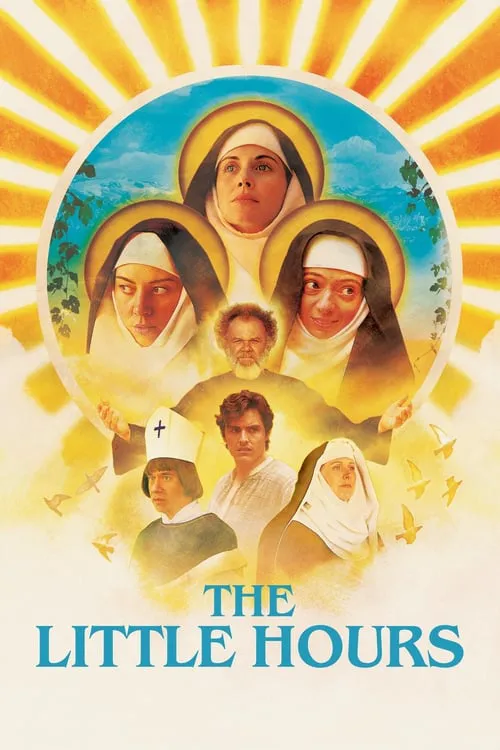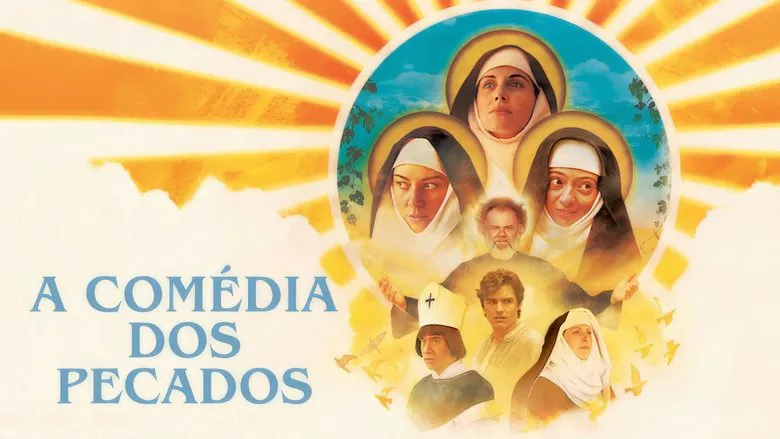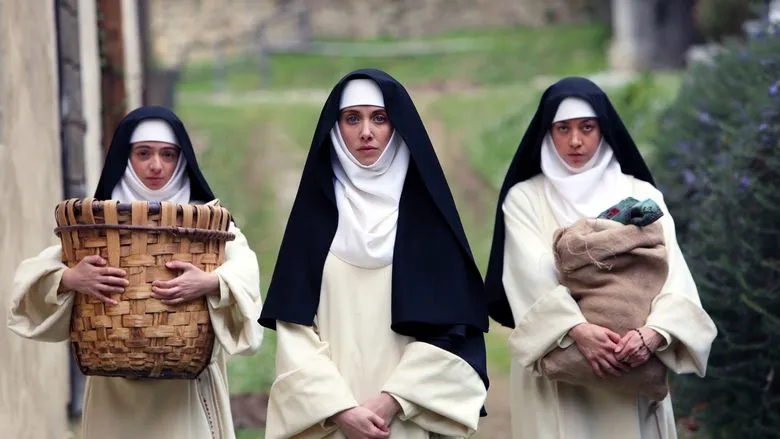The Little Hours

Plot
In the rural hills of Garfagnana, Italy, where the landscape is dominated by lush green forests and rolling mountains, a series of events sets off a chain reaction that shakes the very foundations of the local nunnery. Set in 1347, a time when the Catholic Church held unyielding power and women's roles were strictly defined, we are introduced to Sister Alessandra, a nun who embodies a sense of freedom and nonconformity that is at odds with the strict rules of the nunnery. Alessandra is not the only one struggling with the constraints of her life as a nun. Sister Ginevra, a beautiful and charming young woman, is plagued by her own desires and temptations, which she can hardly keep hidden even behind the veil of her habit. Meanwhile, Sister Fernanda, the strict and austere of the three, is increasingly obsessed with the idea of finding a sense of purpose in her life, much like her sisters, but she takes a more extreme approach to achieve this goal. Just as these nuns are grappling with their own existential crises, a handsome and charming young servant named Masseto arrives at the nunnery, fleeing from his vindictive master. He finds shelter in the nunnery's barn, but as he becomes embroiled in the lives of the nuns, a sense of tension and chaos begins to build. Masetto and the nuns develop a complex and multifaceted relationship, which is both charged with emotion and replete with comedic moments. Massimo Ceccherini's portrayal of Masetto brings to life a character who is both endearing and duplicitous, often using the nuns for his own gain, but also showing a capacity for empathy and understanding. One of the standout aspects of the film is the way in which it explores the complex and multifaceted nature of female desire, power, and spirituality. Through the characters of the three nuns, writer-director Jeff Baena is able to convey the deep-seated feelings of frustration, longing, and disillusionment that many women experience when trapped in traditional roles. At the same time, however, the film also suggests that women's desires and needs are not necessarily fixed or unchanging. Rather, they are complex and multifaceted, and can be shaped by a wide range of factors, including social, cultural, and historical context. This is beautifully illustrated through the characters of the nuns, each of whom embodies a different aspect of femininity and spirituality. The cinematography of the film is a visual feast, capturing the breathtaking beauty of the Italian countryside and the rustic charm of the nunnery. The use of natural light and the warm, golden tones of the film stock create a sense of intimacy and immediacy, drawing the viewer into the world of the film. One of the most memorable aspects of the film, however, is the way in which it subverts traditional notions of comedy and drama. Rather than simply pitting humor against pathos, the film uses a deft and playful touch to combine both elements in a way that is both surprising and delightful. Ultimately, The Little Hours is a film about the search for identity and meaning in a world that often seems determined to stifle our desires and constrain our choices. Through its complex and multifaceted characters, its witty and engaging dialogue, and its breathtaking cinematography, the film offers a powerful and compelling vision of women's lives and experiences.
Reviews
Articles
1. Review: Little Nicholas: The Light of Childhood

The Enduring Charm of Little Nicholas: A Nostalgic Animated Tribute“Little Nicholas,” the cherished creation of writer René Goscinny and illustrator Jean-Jacques Sempé, holds a special place in the he
2. Review of the film "The Little Hours"

Overlooked Gems: “The Little Hours” - A Medieval Comedy That Skirts the Edges of SinIn our weekly “Missed at the Box Office” column, we highlight films that, while not gracing Russian cinema screens,
Recommendations




